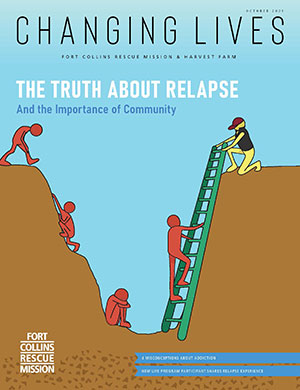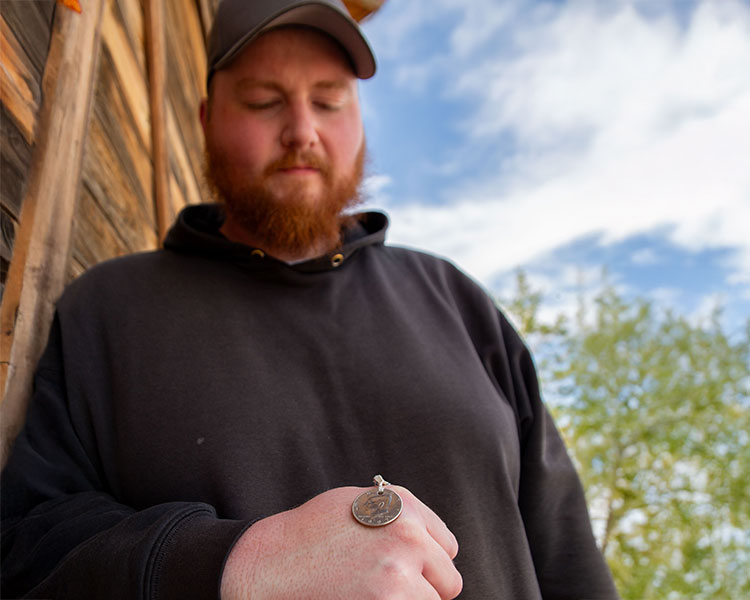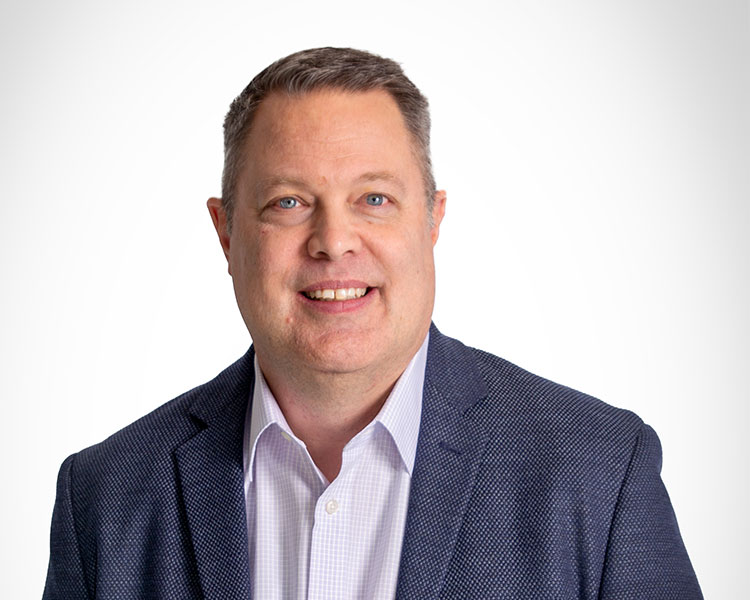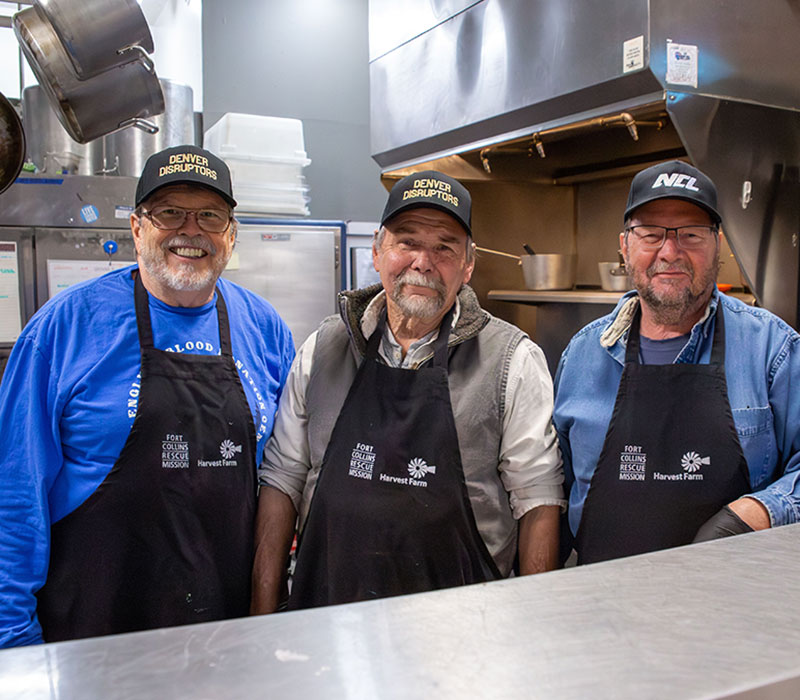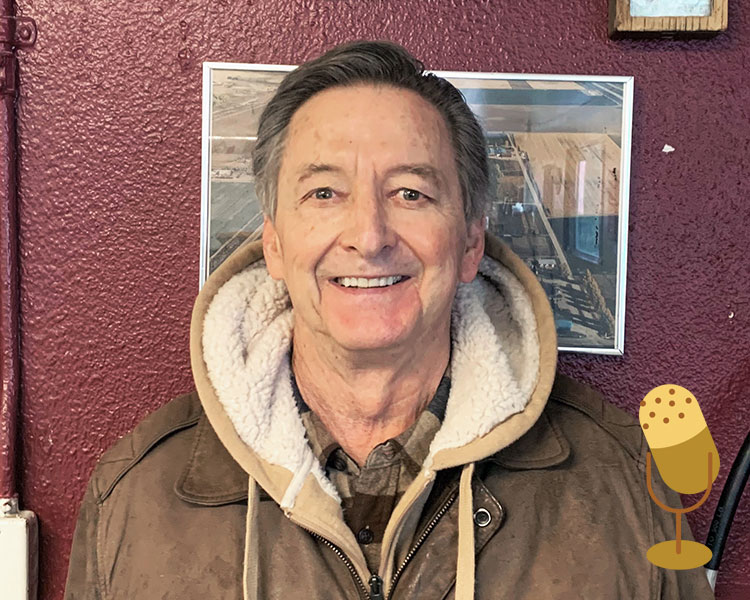
Bob Gregg has worked at Harvest Farm for more than 22 years as a chaplain and counselor. He has a bachelor’s degree in pastoral theology from Bethany College in California and a master’s degree in guidance and counseling from the University of Colorado Denver. Bob lives with his wife, Terri, and two dogs in Bellvue, Colorado.
Will you describe your role as a counselor at Harvest Farm?
I work to be a positive Christian role model and have a loving, caring and therapeutic
relationship with the men God puts on my caseload. I work with them to deal with any pain,
hurt, rejection, and trauma of the past and help them create peace in the present so they can
look forward to the future with hope. This is done by rewriting a new script for a new life
because the old ways have not worked. We do vision casting for their futures, where they see
what their lives look like clean and sober. If addiction equals loss, then recovery equals found,
so I encourage them to commit to the process of change and trust God with the results.
How do you support men who have relapsed and encourage them in their journeys of recovery?
I try to give them peace and [encourage them] to forgive themselves as God has forgiven them.
Success is getting up one more time than you have fallen. I encourage them to accept the
reality of what went wrong and find what they can do to correct that in this process of change.
Many of the guys do relapse, but the key is asking, what have I learned from it? It is being
committed to a lifelong process of recovery and realizing that there is spiritual warfare every
day. Staying humble and cooperating with God and His word are critical in preventing relapse.
How have you seen Chris grow during his time in the program?
I have had 24 counseling sessions with Chris, and I think the key to his growth has been his
spiritual walk. There needs to be an inner determination for success, and Chris has that. After
eight and a half years of praying and working, Chris is now reconciling with his three children,
and those are significant victories. Also, the first time Chris was at the Mission, he did not
establish a healthy community. Now, he has a very strong community and a very solid
Christian mentor. The opposite of addiction is community, so community support and
accountability are critical in preventing relapse.
This post is part of October’s Changing Lives Newsletter. This month, you’ll learn about four misconceptions of relapse and how the Mission is helping people suffering with addiction.
